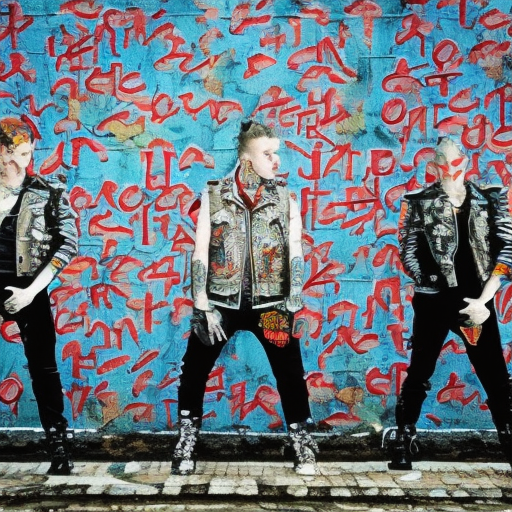Punk Rock:
Punk rock is a genre of music that emerged in the 1970s as a rebellious and anti-establishment movement. It is characterized by its fast-paced, aggressive sound, simple chord structures, and raw, unpolished production. Punk rock is not just a style of music, but also a subculture with its own fashion, attitude, and DIY ethos.
The Origins of Punk Rock
Punk rock originated in the mid-1970s in the United States and the United Kingdom as a reaction to the perceived commercialization and excesses of mainstream rock music. Bands like the Ramones, the Sex Pistols, and the Clash were at the forefront of the movement, with their energetic and provocative performances.
Musical Characteristics
Punk rock is known for its fast and aggressive sound. Songs are typically short, often lasting less than three minutes, and feature simple chord progressions. The lyrics often address social and political issues, as well as personal frustrations and alienation. The music is characterized by its raw and unpolished production, with a focus on energy and attitude rather than technical proficiency.
The Punk Subculture
Punk rock is closely associated with a distinct subculture that emerged alongside the music. The punk subculture is characterized by its rebellious attitude, anti-establishment beliefs, and DIY ethos. Punk fashion often includes ripped clothing, band t-shirts, leather jackets, and distinctive hairstyles such as brightly colored or spiked hair. The punk subculture also embraces a DIY (do-it-yourself) approach, with many bands self-releasing their music and organizing their own shows.
Influence and Legacy
Punk rock had a significant impact on the music industry and popular culture. It inspired countless bands and genres, including post-punk, hardcore punk, and alternative rock. The DIY ethos of punk also influenced the independent music scene, with many artists choosing to self-produce and distribute their music. Punk’s rebellious and anti-establishment attitude continues to resonate with subsequent generations, making it a lasting and influential cultural movement.
Notable Punk Rock Bands
- The Ramones: The Ramones are often considered one of the first punk rock bands. Their fast and catchy songs, such as “Blitzkrieg Bop” and “I Wanna Be Sedated,” became anthems of the punk movement.
- The Sex Pistols: The Sex Pistols were a controversial and influential British punk band. Their confrontational lyrics and aggressive sound, as heard in songs like “Anarchy in the U.K.” and “God Save the Queen,” shocked and captivated audiences.
- The Clash: The Clash combined punk rock with elements of reggae, ska, and rockabilly, creating a unique sound. Their politically charged lyrics and energetic performances made them one of the most important punk bands of all time.
- The Dead Kennedys: The Dead Kennedys were known for their satirical and politically charged lyrics, addressing topics such as consumerism and government corruption. Songs like “Holiday in Cambodia” and “California Über Alles” are punk classics.
- The Misfits: The Misfits blended punk rock with horror imagery and themes, creating a unique and influential sound. Their songs, such as “Last Caress” and “Hybrid Moments,” continue to be celebrated by punk fans.
Punk Rock Today
While the heyday of punk rock was in the 1970s and 1980s, the genre continues to thrive today. Punk bands like Green Day, Rancid, and NOFX have achieved mainstream success while staying true to the punk ethos. The DIY approach of punk rock has also influenced other genres, with many independent artists and labels embracing the same principles.
In conclusion, punk rock is a genre of music and a subculture that emerged in the 1970s as a rebellious and anti-establishment movement. Known for its fast-paced, aggressive sound, punk rock is characterized by its raw and unpolished production, simple chord structures, and socially and politically charged lyrics. The punk subculture embraces a DIY ethos and is associated with a distinct fashion and attitude. Punk rock has had a lasting influence on the music industry and popular culture, inspiring countless bands and genres. Today, punk rock continues to thrive, with both established and emerging artists carrying on the spirit of rebellion and self-expression.












